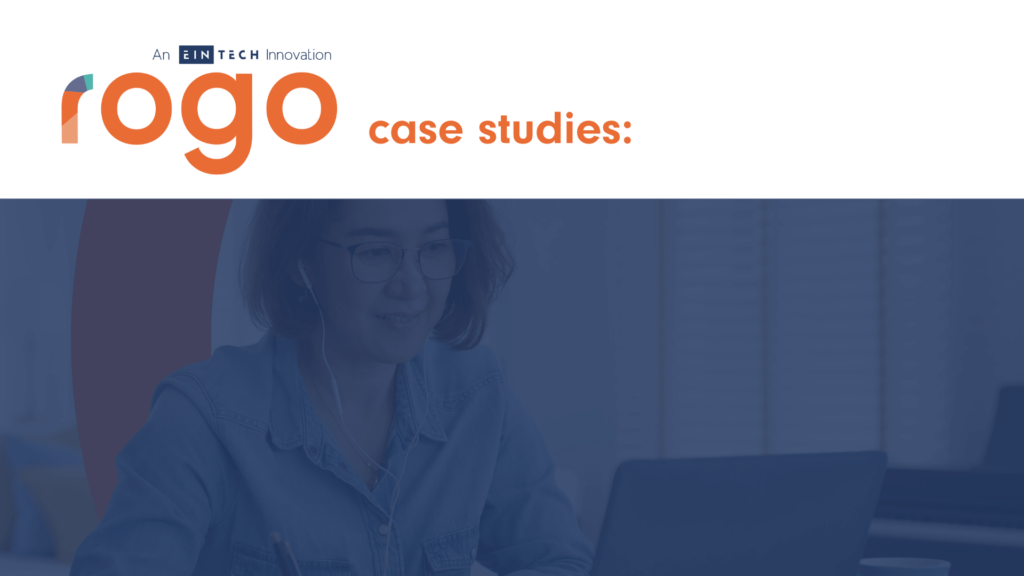In a rapidly changing educational landscape, the 2023 FAB Conference offered a wide range of insight and direction. From the urgent need to rethink productivity and skill strategies to the evolving role of AI in learning (it wouldn’t be a conference in 2023 without mentioning AI after all!), the conference painted a vivid picture of the challenges and opportunities ahead. Speaking to industry thought leaders and professionals who attended the event, we hope this article helps to summarise key takeaways from the conference.
But before you read on, we would love to hear your thoughts on these topics too, so let us know at marketing@eintech.com and we’ll use your contributions in future thought pieces.
(Please note, the opinions gathered here reflect members of the conference audience and opinions may not be shared by the Eintech team).
1. Productivity Growth: A Call for Integrated Skills Strategy
At the forefront of the 2023 FAB Conference was a critical discussion on productivity growth. Despite numerous reviews and changes in the UK’s skills sector, a significant gap remains in achieving desired productivity, wage growth, and skill attainment levels. The conference emphasised the need for cohesive collaboration between government, employers, and education providers. An integrated approach to skill development, coupled with increased funding for technical and further education, was highlighted as a crucial step towards addressing these challenges.
Read: https://awarding.org.uk/wp-content/uploads/2023/09/Running-to-Stay-Still-v9-8-23.pdf
2. Green Skills: The Emerging Career Pathway
With its pulse firmly monitoring trends for the future, the FAB conference underscored the growing importance of green skills, especially among the youth, to support the burgeoning green economy. The UK faces a substantial demand for skilled professionals in sustainable sectors, such as the need for 300k retro heat pump fitters by 2030. However, the lack of awareness and clear career pathways, particularly for young women, remains a hurdle. The UK Awarding market is poised to play a significant role in nurturing this green skillset.
Talk to Reed Environment about training for Green Skills: https://reedenvironment.com
3. Mental Health in Assessment: Revisiting Evaluation Methods
Mental health impact due to the stress of assessments were a focal point for the focus of the panel discussions. With a significant portion of students finding assessments stressful and unfair, the conference called for a re-evaluation of assessment methods that address a need for equity in testing. Put simply, the goal is to make assessments less worrying while maintaining their essential role in the educational process.
Like the next point below, DEI (Diversity, Equity and Inclusion) topics and candidate wellbeing are now more discussed than ever.
Read: The Youth Voice Census 2023: https://www.youthemployment.org.uk/dev/wp-content/themes/yeuk/files/youth-voice-census-2023-report.pdf
Upcoming Events: See Ben Brady, our Head of Marketing, talk about Inclusive and Universal Design at ATP 2024 in Anaheim California
4. Accessibility: A Universal Concern
Accessibility, often associated solely with Special Educational Needs and Disabilities (SEND), was recognised as a broader issue. With technology playing a vital role in leveling the playing field, the conference advocated for technology solutions that genuinely address educational barriers, rather than technology for its own sake.
5. International Targets: Adapting to Local Needs
The conference underscored the significant potential of UK educational methodologies in international markets, emphasising their role in global growth strategies for many organisations. It highlighted the necessity of tailoring these methodologies to local contexts, ensuring that they align with the specific social and economic objectives of each market, such as poverty reduction and sustainable development. This approach requires a deep understanding of local environments and the ability to communicate the relevance and value of qualifications in a way that resonates with these contexts. For Awarding Organisations (AOs) looking to expand into new territories, it’s crucial to not only leverage UK best practices but also to integrate them into the broader framework of each market’s developmental goals.
Follow: https://www.linkedin.com/in/jonathandledger/
6. Inequality in Education: Integrating Systems
Inequality in education was addressed through the lens of system integration. The conference suggested that proposed entities like Skills England should not operate in isolation but as part of a larger, interconnected educational framework. Recent research by the Learning and Work Institute shows that there are significant disparities in lifelong learning, particularly among lower-paid workers and those out of work, alongside growing regional divides.
The AO community needs to find ways in which it can turn the tide on inequality that works on both a regional and national level.
Read: https://learningandwork.org.uk/what-we-do/lifelong-learning/adult-participation-in-learning-survey/
7. AI and the Future of Learning
The emergence of advanced tools, such as Microsoft’s Co-Pilot, underscores the urgency for Awarding Organisations to revisit and revise their assessment strategies promptly. AI could (more likely will) reshape the very nature of what and how we learn, and before we know it! The Edge Foundation reported that AI will impact, in some form, the careers of 12 million employees. This evolution in the workplace requires a parallel evolution in AOs.
Beyond ensuring the integrity of assessments, AOs must also adapt to assess soft skills more effectively, recognising their growing value in the workforce.
Watch: https://vimeo.com/888005726
So there we have it, 7 takeaways from a conference that was full to the brim with conversation, enthusiasm and innovation.
Were you at FAB 2023? What were your key takeaways? Do you agree with our contributors?
Do let us know at marketing@eintech.com
If you like this article, don’t forget to sign up to the Rogo newsletter to have new content delivered straight to your inbox: https://getrogo.com/newsletter


